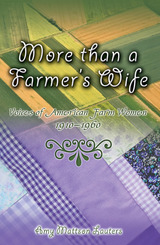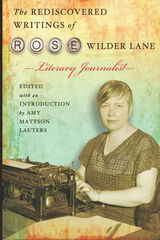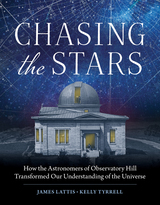2 books about Lauters, Amy Mattson

More than a Farmer's Wife
Voices of American Farm Women, 1910-1960
Amy Mattson Lauters
University of Missouri Press, 2009
Farm women have often been seen by their city sisters as victims of patriarchy, overwork, and poverty, aptly depicted by the “Migrant Mother” image from the Great Depression. Amy Mattson Lauters now goes directly to the women themselves to get the other side of the story of American farm life: that many women survived and even thrived on farms through the adversity of the Great Depression and beyond.
More than a Farmer’s Wife spans fifty years of farm life to reveal that many women saw farming as an opportunity to be full partners with their husbands and considered themselves businesswomen central to the success of their farms. Lauters shows that the farm woman was fundamental to the farming industry—the backbone of the family business and the manager of the farm home—as she explores the role of media in the farm woman’s everyday life and discusses the construction of the American farm woman in those publications.
Lauters combed a half-century of farming, women’s, and mainstream magazines, ranging from The Farmer’s Wife to the Saturday Evening Post and including the journalism of writers such as Laura Ingalls Wilder and Rose Wilder Lane. She also conducted interviews with more than 180 women who were raised on or lived on farms to probe how they felt about their lives and determine how closely their perceptions matched the images found in the media.
The period covered here was one of enormous instability and change for American farming: rural and farm families declined by a third as the population shifted from primarily rural to urban/suburban. Lauters examines such changes as increasing industrialization and the rise of consumer culture and also tells how farm women responded to such events as economic depression, world war, and suffrage. And she explores the deepening divide between city and farm women, so that by the end of this period, urban and rural women had virtually no common ground for understanding each other.
“It was a hard, but simple life,” one farm woman wrote, “and I feel we had more of a family life than anyone else has today.” That sentiment speaks volumes, and this book uncovers the deep divide between urban and rural cultures that emerged during this period, one that continues to be felt today.
[more]

The Rediscovered Writings of Rose Wilder Lane, Literary Journalist
Edited by Amy Mattson Lauters
University of Missouri Press, 2007
Through numerous short stories, novels such as Free Land, and political writings such as “Credo,” Rose Wilder Lane forged a literary career that would be eclipsed by the shadow of her mother, Laura Ingalls Wilder, whose Little House books Lane edited. Lane’s fifty-year career in journalism has remained largely unexplored.
This book recovers journalistic work by an American icon for whom scholarly recognition is long overdue. Amy Mattson Lauters introduces readers to Lane’s life through examples of her journalism and argues that her work and career help establish her not only as an author and political rhetorician but also as a literary journalist. Lauters has assembled a collection of rarely seen nonfiction articles that illustrate Lane’s talent as a writer of literary nonfiction, provide on-the-spot views of key moments in American cultural history, and offer sharp commentary on historical events.
Through this collection of Lane’s journalism, dating from early work for Sunset magazine in 1918 to her final piece for Woman’s Day set in 1965 Saigon, Lauters shows how Lane infused her writing with her particular ideology of Americanism and individualism, self-reliance, and freedom from government interference, thereby offering stark commentary on her times. Lane shares her experiences as an extra in a Douglas Fairbanks movie and interviews D.W. Griffith. She reports on average American women struggling to raise a family in wartime and hikes over the Albanian mountains between the world wars. Her own maturing conservative political views provide a lens through which readers can view debates over the draft, war, and women’s citizenship during World War II, and her capstone piece brings us again into a culture torn by war, this time in Southeast Asia.
These writings have not been available to the reading public since they first appeared. They encapsulate important moments for Lane and her times, revealing the woman behind the text, the development of her signature literary style, and her progression as a writer. Lauters’s introduction reveals the flow of Lane’s life and career, offering key insights into women’s history, the literary journalism genre, and American culture in the first half of the twentieth century.
Through these works, readers will discover a writer whose cultural identity was quintessentially American, middle class, midwestern, and simplistic—and who assumed the mantle of custodian to Americanism through women’s arts. The Rediscovered Writings of Rose Wilder Lane traces the extraordinary relationship between one woman and American society over fifty pivotal years and offers readers a treasury of writings to enjoy and discuss.
This book recovers journalistic work by an American icon for whom scholarly recognition is long overdue. Amy Mattson Lauters introduces readers to Lane’s life through examples of her journalism and argues that her work and career help establish her not only as an author and political rhetorician but also as a literary journalist. Lauters has assembled a collection of rarely seen nonfiction articles that illustrate Lane’s talent as a writer of literary nonfiction, provide on-the-spot views of key moments in American cultural history, and offer sharp commentary on historical events.
Through this collection of Lane’s journalism, dating from early work for Sunset magazine in 1918 to her final piece for Woman’s Day set in 1965 Saigon, Lauters shows how Lane infused her writing with her particular ideology of Americanism and individualism, self-reliance, and freedom from government interference, thereby offering stark commentary on her times. Lane shares her experiences as an extra in a Douglas Fairbanks movie and interviews D.W. Griffith. She reports on average American women struggling to raise a family in wartime and hikes over the Albanian mountains between the world wars. Her own maturing conservative political views provide a lens through which readers can view debates over the draft, war, and women’s citizenship during World War II, and her capstone piece brings us again into a culture torn by war, this time in Southeast Asia.
These writings have not been available to the reading public since they first appeared. They encapsulate important moments for Lane and her times, revealing the woman behind the text, the development of her signature literary style, and her progression as a writer. Lauters’s introduction reveals the flow of Lane’s life and career, offering key insights into women’s history, the literary journalism genre, and American culture in the first half of the twentieth century.
Through these works, readers will discover a writer whose cultural identity was quintessentially American, middle class, midwestern, and simplistic—and who assumed the mantle of custodian to Americanism through women’s arts. The Rediscovered Writings of Rose Wilder Lane traces the extraordinary relationship between one woman and American society over fifty pivotal years and offers readers a treasury of writings to enjoy and discuss.
[more]
READERS
Browse our collection.
PUBLISHERS
See BiblioVault's publisher services.
STUDENT SERVICES
Files for college accessibility offices.
UChicago Accessibility Resources
home | accessibility | search | about | contact us
BiblioVault ® 2001 - 2024
The University of Chicago Press









